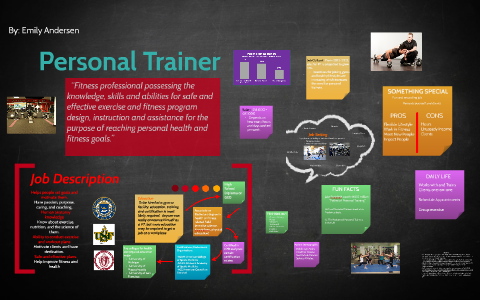
There are several levels of personal-training certifications. There are many levels of personal training certifications, including the National Academy of Sports Medicine (NASM). While this sound very high and mighty, it is quite easy to check. The higher the level of certification the better. Some personal trainers are also certified by the Precision Nutrition Level 1 certification.
ACSM-certified personal trainer
ACSM Certification Reviews is a book that can help prepare you for certification examinations to earn ACSM credentials. These credentials are ACSM Certified Health Fitness Specialist, ACSM Certified Clinical Exercise Specialist, or ACSM Certified Personal Coach. These exams can be passed with a greater chance if you prepare well.

You can buy study guides for ACSM certification tests at a number of websites. Some of them contain sample questions, and others include a comprehensive review of the material. Many of these resources offer practice exams for ACSM-CPT examinations.
Precision Nutrition Level 1 Certification
It is possible to earn the Precision Nutrition level one personal training certification. This course is perfect for anyone looking to provide additional services to clients or those already working in the fitness and health industry. This course provides the necessary tools for coaching nutrition in a practical and easy-to-understand way.
Precision Nutrition is an online course available worldwide. Online courses are available anywhere, anytime. The course can be completed at your own pace and is open for you to read. Online tutors are available as well as a printed text. The program also includes access to a supportive community.
ISSA Certified Personal Trainee Course
The ISSA Certified Personal Training Course will help you get started in your personal training career. The program takes about 10 weeks to complete and includes a comprehensive textbook and audio lectures. There are quizzes throughout the course to help you understand concepts. And, finally, there is a 200-question examination. Open-book exam: This will give you more time to use your knowledge in real life situations.

The ISSA Certified Trainer Course is online. It does not have live instructor sessions, but it provides comprehensive study materials and an active community. The course's professionalism and thoroughness have been highly praised by the reviewers. After the course is completed, you must complete at least 20 continuing education hours every two year. As an additional bonus, you'll receive a discounted renewal cost.
FAQ
Do I gain weight from exercising?
Not at all. Exercise can actually help you maintain your weight. Exercise regularly will build muscles and increase metabolism. You'll burn more calories per day if you do. This means your body will not store as much fat.
How do I get started with Fitness?
Start small! You can start by taking 10 minutes each week to walk around the block. This will give you basic movement patterns and give your muscles time to adapt to the new routine. Once you've mastered this simple form of exercise, try adding more steps to your daily routine.
Is it necessary to eat before exercising?
No. You don't need to eat anything before working out. It is possible to snack on yogurt or fruit if you are hungry after your workout.
Why is physical activity important?
For our health, physical fitness is vital. Exercise is important to maintain your weight, strength and flexibility as well our cardiovascular system. Exercise can help you sleep better, reduce stress, increase self-esteem, and increase energy levels throughout your day.
What does Nutrition do for Your Body?
Your body can function properly if you get the proper nutrition. A balanced diet that includes plenty of fruits, vegetables, lean protein, whole grains, healthy fats, and lean proteins is the best way to ensure you get adequate nutrition.
Do I need to warm up before exercising?
Warming up before an activity can reduce muscle soreness, improve performance, and help to prevent injury. There are many methods you can use to warm up, including running, jumping rope and stretching. Start slow and slowly increase your pace.
Statistics
- According to the Centers for Disease Control and Prevention, chronic diseases cause 7 out of 10 deaths in the U.S., and treating chronic diseases accounts for 86% of U.S. healthcare costs. (mana.md)
- An estimated 110,000 deaths per year could be prevented (cdc.gov)
- One study showed that adults who watch more than 4 hours of television daily had an 80% higher risk of death from cardiovascular disease. (heart.org)
- Globally, 28% of adults aged 18 and over were not active enough in 2016 (men 23% and women 32%). (who.int)
External Links
How To
How to Stay Fit at Age 40
This article helps those over 40 to keep their body strong and healthy. It provides some basic advice about how to eat right and exercise well as how to take care of your mental wellbeing. This article provides tips to help you live longer and be healthier.
-
Eat Right - The first thing you should do when trying to stay fit is to ensure you're eating the right foods. You should avoid processed foods products and opt to eat whole grains, fruits, vegetables and lean meats, fish and nuts as well as beans, seeds, nuts and seeds. If you don't like what you're eating, just add something else to your diet. You won't lose weight if you don't eat as much. Try adding small amounts of different foods to your daily meal. If you normally only eat chicken breasts, you might consider adding turkey to your weekly meals. You might also enjoy rice if you like pasta. Consider including these foods in your daily meals.
-
Exercise – Make sure you exercise at least 3x per week. Ensure you include cardio activities such as walking, running, swimming, biking, dancing, etc. Rest is also important. Sleeping for 8 hours per night is recommended. Drink plenty of water throughout the day. Two liters (0.5 gallons), of water should be consumed each day.
-
Sleep Well - Getting adequate sleep is essential to staying fit. The National Sleep Foundation estimates that adults need to get 7-8 hours sleep each night to achieve optimal physical and psychological health. Most people only get 6 hours sleep per night. Changes in your sleeping habits can make you more tired. To catch up on sleep, you can adjust your sleeping habits to get to bed earlier and wake up later. Turn off your phone prior to going to bed to help you wind down and relax. Avoid caffeine after noon as it can cause insomnia.
-
Take Care of Your Mental Health. Taking care of yourself is key to maintaining a healthy body. Stressful situations can lead to poor eating habits and unhealthy lifestyle choices. Therefore, it's important to make sure that you practice stress management techniques such as meditation, yoga, breathing exercises, and relaxation techniques. Do something that is enjoyable for at least an hour. This could be taking a stroll outside, reading a book or listening to music.
These four simple steps will help you live a longer, healthier life. These are simple steps that will help you reach your fitness goals.